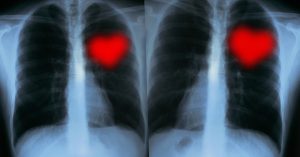How Dangerous is Atrial Fibrillation?
Atrial fibrillation is a condition in which an individual experiences an irregular and sometimes rapid heartbeat. While atrial fibrillation is a relatively common and treatable condition, it can lead to life-threatening consequences if left unchecked. Symptoms include palpitations, weakness, lethargy, dizziness, lightheadedness, shortness of breath, and chest pain. If you are experiencing any of these symptoms or are concerned with your overall heart health, consult a cardiologist in Tampa from Ascent Cardiology Group.
Life-Threatening Complications
The main concern with atrial fibrillation is that it increases the risk of stroke and heart failure. An irregular heartbeat can cause blood clots to form in the heart’s upper chambers. Subsequently, a stroke can occur when one of these blood clots travels from the heart to the brain. This is concerning because of the distinct correlation between atrial fibrillation and strokes; atrial fibrillation is present in one out of every five strokes.
Even if a stroke is avoided, atrial fibrillation can weaken the heart to the point that it is unable to pump enough blood throughout the body. This is known as heart failure, a lifelong condition that can cause severe health problems and lead to death. Due to the potentially lifelong implications of atrial fibrillation, it’s imperative that anyone who is experiencing an irregular heartbeat seek diagnosis and treatment from a qualified cardiologist in Tampa, FL.
Even if a stroke is avoided, atrial fibrillation can weaken the heart to the point that it is unable to pump enough blood throughout the body. This is known as heart failure, a lifelong condition that can cause severe health problems and lead to death. Due to the potentially lifelong implications of atrial fibrillation, it’s imperative that anyone who is experiencing an irregular heartbeat seek diagnosis and treatment from a qualified cardiologist in Tampa, FL.
Risk Factors
Palpitations, chest pain, and fatigue are common symptoms of atrial fibrillation. However, many sufferers experience no symptoms until they are examined by a medical professional. If the following risk factors apply to you, you should schedule an appointment to not only prevent atrial fibrillation but also promote your general heart health:
• Advanced Age
• Heart Disease
• High Blood Pressure
• Kidney or Lung Disease
• Thyroid Issues
• Sleep Apnea
• Alcoholism
• Obesity
• Diabetes
• Family History
• Advanced Age
• Heart Disease
• High Blood Pressure
• Kidney or Lung Disease
• Thyroid Issues
• Sleep Apnea
• Alcoholism
• Obesity
• Diabetes
• Family History
Treating Atrial Fibrillation
Medication and lifestyle changes are often all that is needed to treat atrial fibrillation and restore proper heart functions. Those who live with atrial fibrillation can go on to enjoy a happy, healthy life without being severely impacted by their condition. In more severe cases, catheter ablation, a minimally invasive procedure, can be employed to create scar tissue that disrupts the abnormal electrical signals that are causing the patient’s heart to beat irregularly.
The Plan That’s Right for You
Your current symptoms may not be dangerous, but they can lead to a lifelong and life-threatening condition. Don’t allow this treatable condition to take control of your life; book an appointment with an experienced cardiologist in Tampa and take the first steps towards reclaiming your heart health.
At Ascent Cardiology Group, we specialize in interventional cardiology, an innovative branch of cardiology that is focused on non-surgical methods to diagnose and treat heart conditions. Accordingly, our treatment plans are personalized and depend entirely on patient needs. When looking for the treatment plan that’s right for you, place your trust in Dr. Sachin Diwadkar and the team of professionals at Ascent Cardiology Group.
At Ascent Cardiology Group, we specialize in interventional cardiology, an innovative branch of cardiology that is focused on non-surgical methods to diagnose and treat heart conditions. Accordingly, our treatment plans are personalized and depend entirely on patient needs. When looking for the treatment plan that’s right for you, place your trust in Dr. Sachin Diwadkar and the team of professionals at Ascent Cardiology Group.
To consult a cardiologist in Tampa, FL, from Ascent Cardiology Group, please request an appointment today.
Disclaimer: The contents of this website are for general educational purposes only. All content and media on the Ascent Cardiology Group website does not constitute professional medical advice nor is the information intended to replace the services of Ascent Cardiology Group or other qualified medical professionals. If you believe you are having a medical emergency, call 911 immediately.
The content, views, and opinions communicated on this website do not represent the views of Ascent Cardiology Group. Reliance on any information provided by this website is solely at your own risk. Although this website contains links to other medical websites, this is strictly for informational purposes. Ascent Cardiology Group is not responsible nor do they approve of the content featured on any third party linked websites referenced on this website.
The content, views, and opinions communicated on this website do not represent the views of Ascent Cardiology Group. Reliance on any information provided by this website is solely at your own risk. Although this website contains links to other medical websites, this is strictly for informational purposes. Ascent Cardiology Group is not responsible nor do they approve of the content featured on any third party linked websites referenced on this website.
More Resources

Stress and Heart Disease: What You Can Do to Improve Your Heart Health
Working long hours, filling up free time, and taking on additional responsibilities is a way of life for Type A

What is Nuclear Cardiology?
Nuclear cardiology is a subspeciality of general cardiology that involves the use of radioactive substances and advanced medical imaging modalities

Coronary Heart Disease: What Is It and How Is It Treated?
In addition to being the most common type of heart disease, coronary heart disease is the deadliest. In fact, it’s